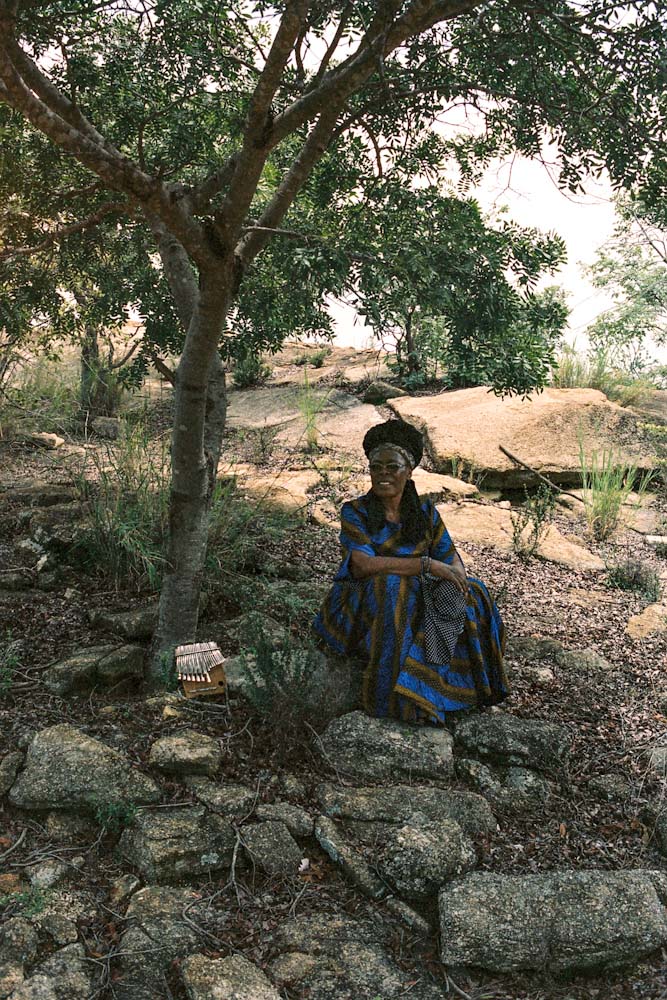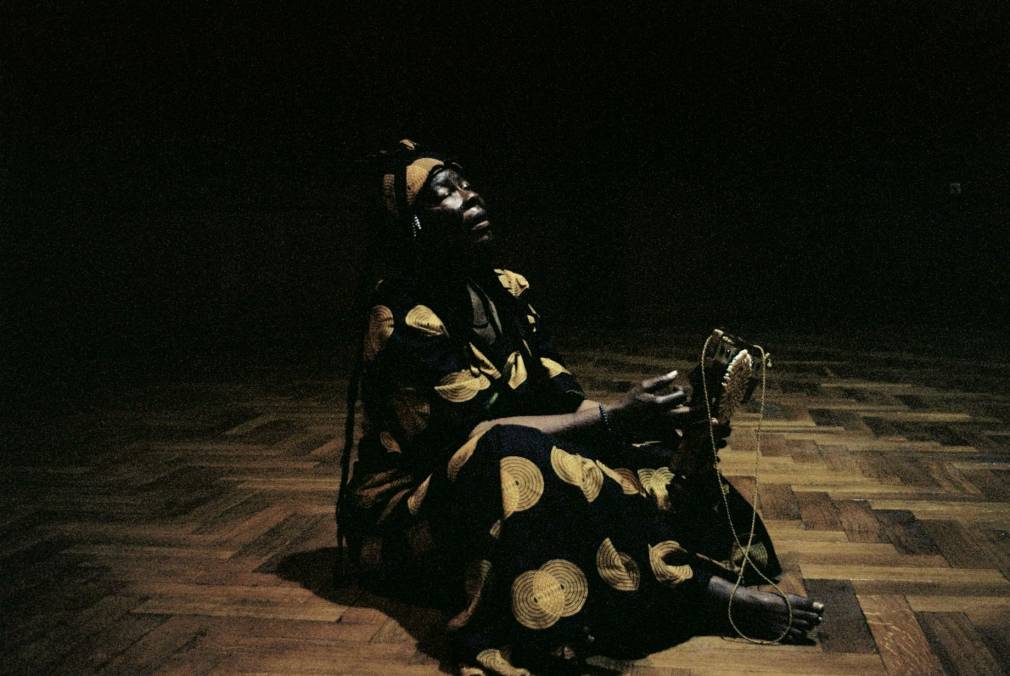Stella Chiweshe, also known as the Queen of Mbira, has embarked on a new adventure and she needs your help. Today, November 19th, Stella Chiweshe is launching a crowdfunding campaign to complete her life’s vision of constructing the Chivanhu Centre, a year-round educational venue for children of the region, offering teaching in mbira and traditional culture beyond what is currently available in schools and creating a space of encounter between elders, specialists and the next generation. This is the story of Stella’s journey, the importance of a Chivanhu Centre in her native Zimbabwe, and how you, the reader, can help bring that vision to reality.
Ambuya Stella Rambisai Chiweshe has dedicated her life to mbira music “I started to play mbira when I was about 16 years old. Now I’m 74 and it still excites me like the first time I started to play. That’s what’s so fantastic about mbira” she expresses with glee in her voice.
The mbira is an instrument that belongs to the family of lamellophones of which there are many different variations across Africa and Zimbabwe depending on the region. The simplest form, the karimba (or kalimba), consists of 8 to 15 lamellae (small metal plates), and is possibly the basis of all other lamellophones in the subregion. The mbira is composed of 22 to 28 lamellae and frequently placed inside a calabash deze to create a rich natural resonance. However the mbira is much more than an instrument. It also plays a spiritual role in Shona society, acting as an in-between for the living, their ancestors and the creator God.
In Stella’s words, mbira “is like breathing. It does not disturb you from doing what you’ve been doing already. It brings a lot of intuition. It scratches the deepest part of a human being. What it does, when a person hears it, it goes straight and touches the soul, the root of the soul. Mbira comes in to give you the answers to the questions that you’ve been asking yourself. So the answer comes from within. It relaxes the mind. It directs the mind to where it needs to go to free itself from the condition of all what you think about. It helps a lot. Any age.”
However, it wasn’t always so easy and carefree to play the mbira, as Stella recounts, growing up in colonised Zimbabwe, “traditional music was banned *laugh* Can you imagine? Mbira was the music of the devil and the devil, I can tell you, was a black person like me with horns. She continues, where I grew all the people who kept playing mbira or ngoma, the treble drums, were kicked out of the Christian community.” Despite the colonial restrictions, including risk of imprisonment, and defying the conservative practice within her community that reserved mbira playing for men, Stella recorded her first single, Kasahwa (an invocation to ancestors) in 1974, a gold record that brought her fame throughout Zimbabwe. The rest, as they say, is history.
Now, after years of international tours sharing the mbira spirit, 11 original albums including the most recent “Kasahwa: Early Singles”, and connecting with artists and peoples the world over, Stella’s experience is culminating into a new project that aims to share and preserve traditional music and culture aptly named, The Chivanhu Centre. “Chivanhu means humanity, Stella explains, as I’ve travelled to many countries meeting a lot of cultures I feel that the basic of Chivanhu is the same. So I decided to call this project Chivanhu. Because this is including every one of us as human beings.”
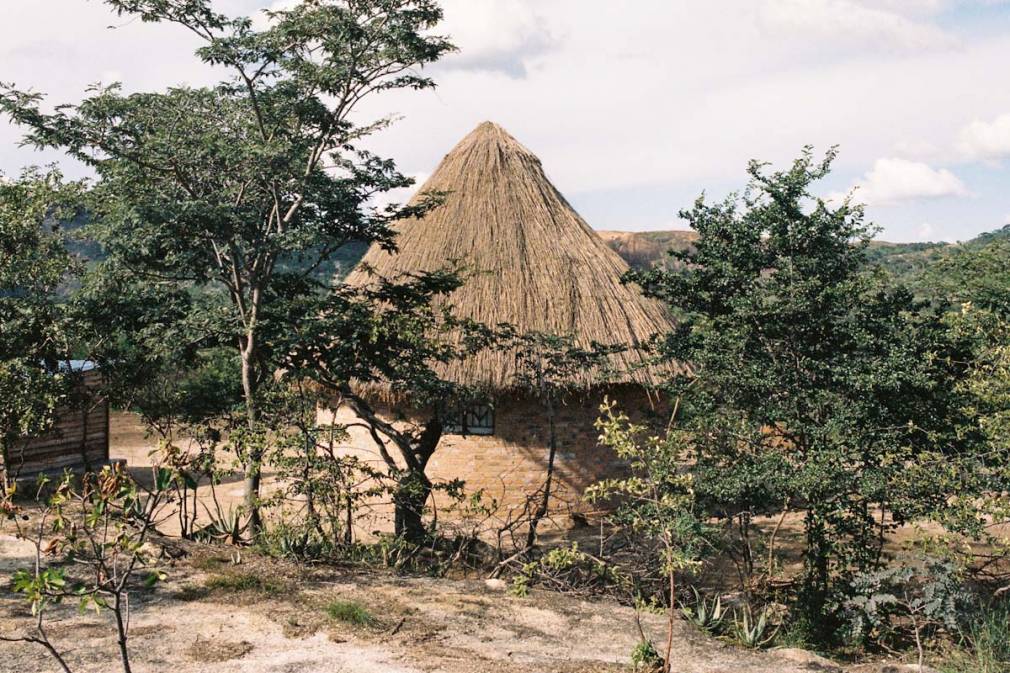
So what exactly is the Chivanhu Centre?
First and foremost the Chivanhu Centre is an organisation, lead by Stella, that aims to preserve, deepen and promote traditional mbira culture, in Zimbabwe and beyond, through the practice and teaching of music, dance and singing focused on the instrument. Located on a plot of land in the Bindura region of Zimbabwe, about 70km from Harare, and perched on a small mountain overlooking the agricultural gardens of the village of Nekati, Stella intends to build a community hall, a garden, an mbira room, as well as traditional huts to host visitors, giving it the character of a small village.
“When I started to play and sing, especially singing, I was reviving and healing the music that was oppressed for so many years. Stella explains During my time I have a platform so I sing those songs that were banned. Then it came to me that I need a place where I call a home for traditional music. To see traditional music as a person, as an entity, who needs a home. I’m giving that home.”
There is a clear need for such an organisation for those interested in cultural preservation and social cohesion. Two groups in particular are implicated in Stella’s vision. First, are the children: “What I am seeing is that they need to be taken further”. Stella describes when observing the young people’s relationship to traditional practices, “I found out when I’m going mbira ceremonies that I see the school children coming and they are behaving not like how it is done. So I saw there is really something missing in the schooling that they’re having. Because when the English came with their system of schools to us, they cut out the department of music. So you see it’s very far where I start to dig from. I can give it back to the people. To let them know that this was done. I want to give a chance to school children to learn this instrument, to learn their manners and gestures, to learn their culture.”
Stella also sees an important role for the elders in the community: “It’s also the old people who are there now. I’m afraid that if the end of the people who are older than me, if they go without giving them a chance to teach us about their growing up. What are they missing? What changed for them? What would they like to teach us, teach the children? During my time, my grandparents were telling me stories. They had time with their children. But this time was cut off because of homework. Stella continues, It is from the elders to these kids that I want to be with. Most of the time it’s not easy to change people from what was planted into them. So I tell people I’m doing this for the next generation to come so that they will learn their tradition early. So I ask people to help me lay the foundation with me. So when they are laying the foundation with me, they are helping themselves.”
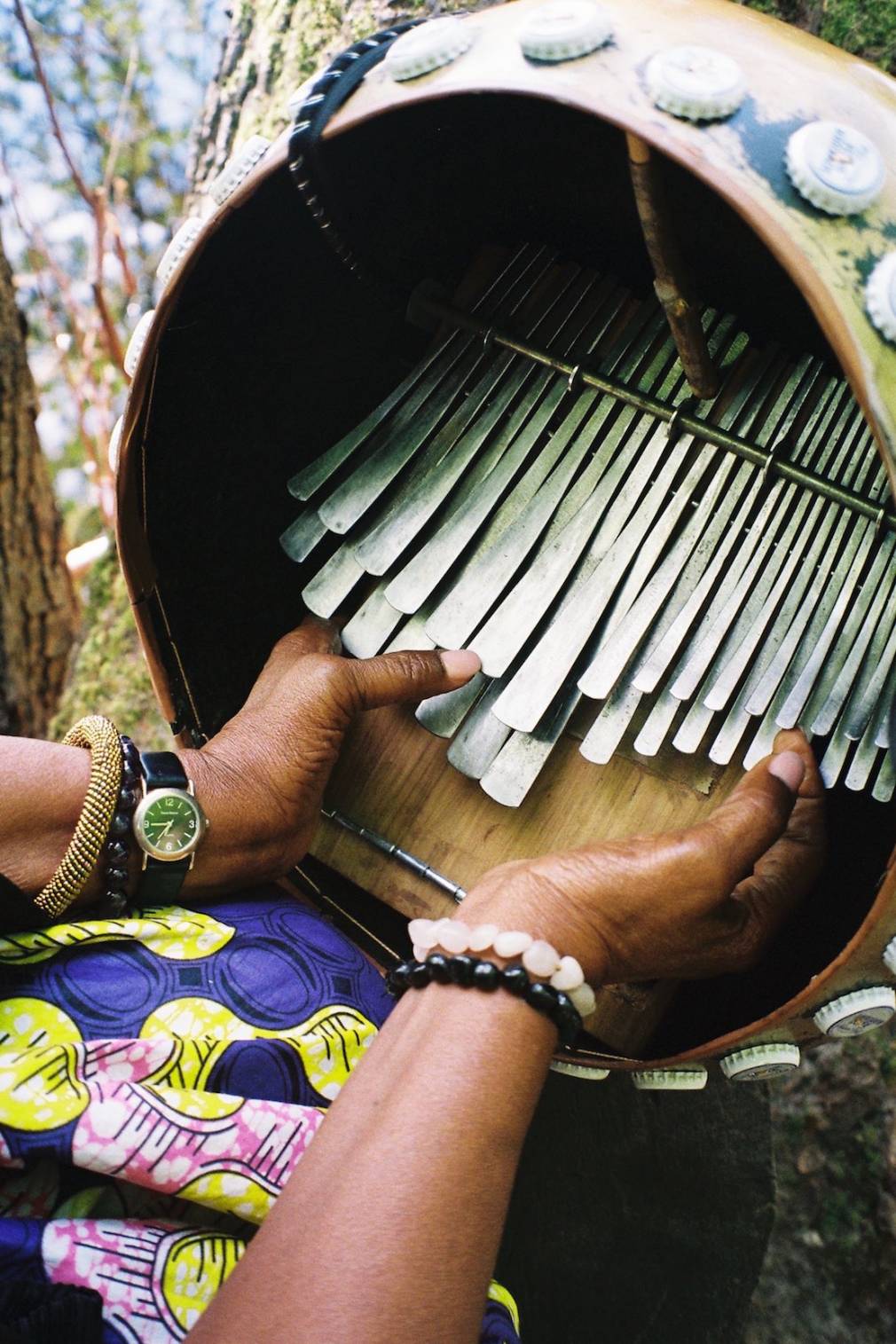
While the mission of the Chivanhu Centre is outward focused, the story is a deeply personal one for Stella. For one, the land on which the Chivanhu Centre is to be built is of her late father: “My parents separated when I was 3 years old. I grew up with my mothers parents and my mother and far away from my father’s home. The luck that threw itself into my life is that my mother was remarried to a different man in the same region where my father lives. We were not allowed to go to my father’s place. But after his death, he was always coming into my sleep, ‘Come home my child. Come home my child. Come home and build your home here’”. More prophetic visions: “Then my mother passed away and then she started to come to my dreams. And she was telling me you cannot keep on living at my place. When she was alive it was our place. But no more, she was saying it was her place. You cannot mix your things with my things. Go to where you belong. So then last year I just say to myself, let me follow what my mother is saying, what my father is saying because they are all right, and then I allowed my body and my soul to go to my father’s place as my father was calling me. When I went there I felt at home and I saw everything, how I wanted to have a centre for traditional music and my home…I’m so thrilled to be there.”
It is important to note here that mbira is the music of the ancestors, perhaps put best by Ambuya Nyati who wrote in her work, Shona Ritual Music, “The mbira is like your Bible . . . It’s our way of praying. It’s our phone with the ancestors.” It is in this spirit that Stella found the home for the Chivanhu Centre, and a great comfort as she plans to use this venue to do what she has always done, teaching mbira: “This I’ve been doing even when I was at my mother’s place, I was inviting people for workshops. There are people who really like to learn how to play this mbira. So I offer people lessons to play mbira. And lessons to play traditional drums. These are the activities that will go on there.” Other activities that the Chivanhu Centre plans to include are forums for international workshops on traditional music, dancing, singing, pottery, pearl work, agricultural knowledge and more. Youth and community members alike will be able to learn how to manufacture mbiras working with elders of the region to pass on their expertise. The Chivanhu Centre will also host traditional Shona ceremonies and local events such as weddings, funerals, seasonal celebrations and music sharing. An important need as the locality sorely lacks a place for elders, children, villagers and musicians to gather.
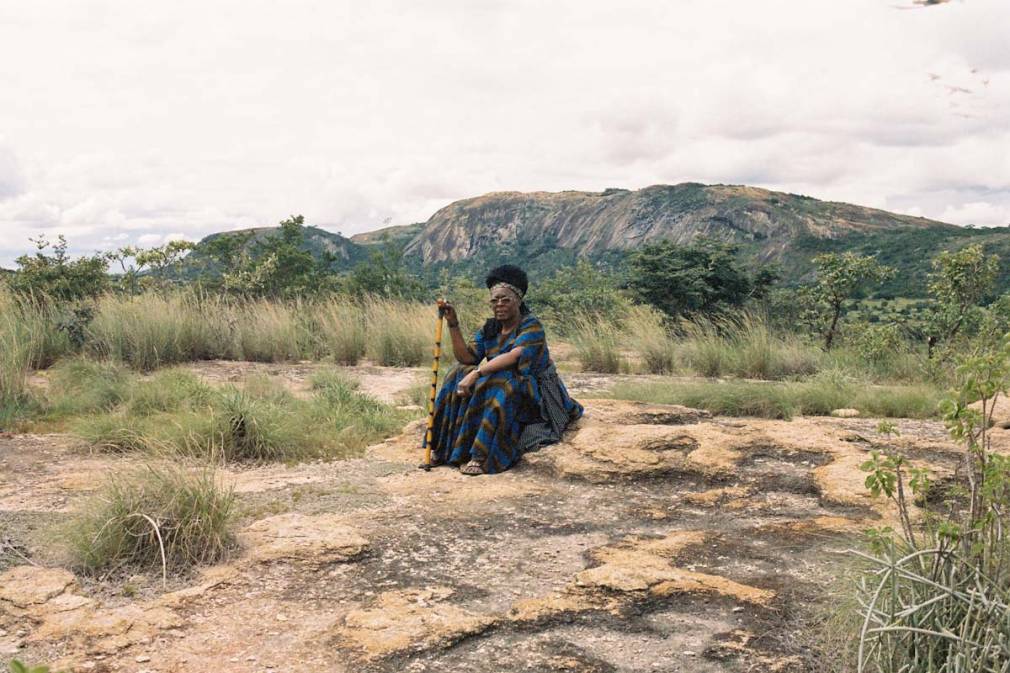
And that’s where you come in.
Today, two prototype huts have already been completed on site. Four temporary wooden cabins have been installed to host visitors and builders, as well as the keeper. But this is far from the completed needs the Chivanhu Center will require to host all of the aforementioned workshops and ceremonies.
Stella and her team are currently crowdfunding to finance the construction of:
– A Community Hall accommodating 200 people for courses and workshops.
– A Stage to support performances and concerts and the teaching of a range of stagecraft skills.
– Lodges including four spaces that will be available for artist preparation back- stage.
– A Community kitchen and services enabling food to be prepared on site for guests and visitors.
– Recording facilities enabling special music sessions to be preserved on the spot and shared with a wider audience
As well as functional needs such as:
– The installation of a solar panel system to provide electricity.
– Set-up a garden using local seeds, plants and traditional planting methods. Drilling a bore hole on site to provide water for the irrigated garden, kitchens, and toilets
The goal is to reach 24000€ with your help:
“Please help me to realise my dream before I leave this body. It is for humanity. Humanity means human nature, we are not animals, we are not trees, we are not water *laughs* so I’m doing this for the entire humanity. says Stella. She also wanted to point out, I want them to know that when they put their help there, I don’t expect that it ends there. I expect that it ends with them coming to the centre.”
I ended our interview by asking Stella if she had any final words for our readers:
“You who will donate to this campaign, will help to build. I’m not building them for myself, I’m building them for many souls. I need others there, who are in the same. People who are of the same feathers of what my hut is yelling for will help me because they know we are doing something for ourselves.
So, I beg, the spirit of oneness as human beings, to be with us in this campaign. Please help. You know you can help. If you don’t have money it does not mean you cannot help. You can also help with your mind, spiritually from where you are. It works, it also helps.”
If you would like to donate to the Chivanhu Centre you can here.
If you cannot donate, please support by following the Chivanhu Centre and spreading the spirit on social media.
